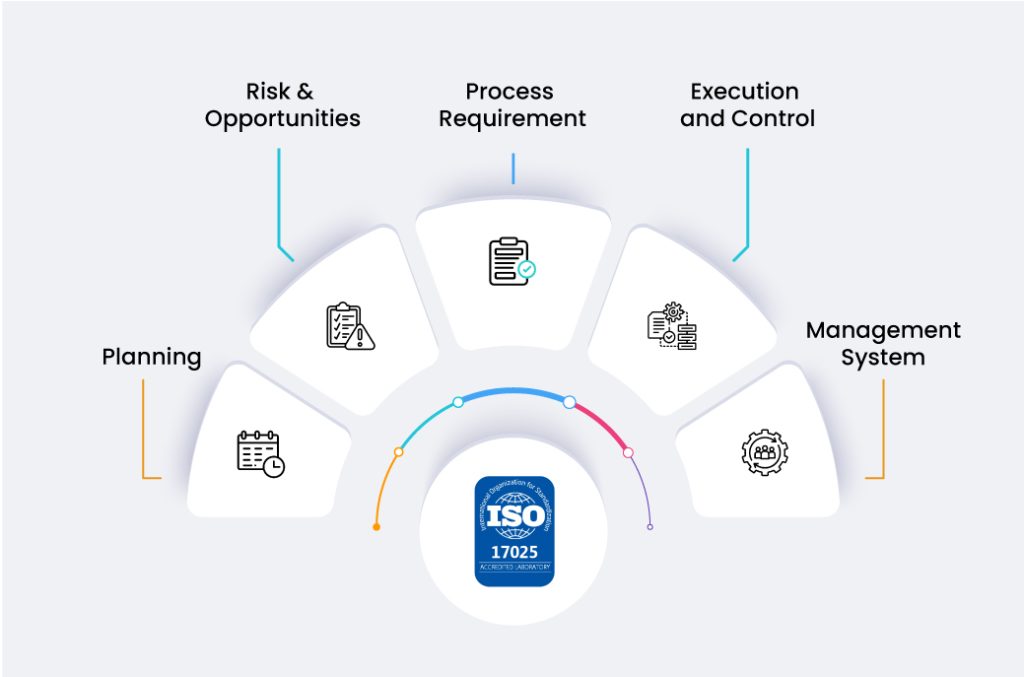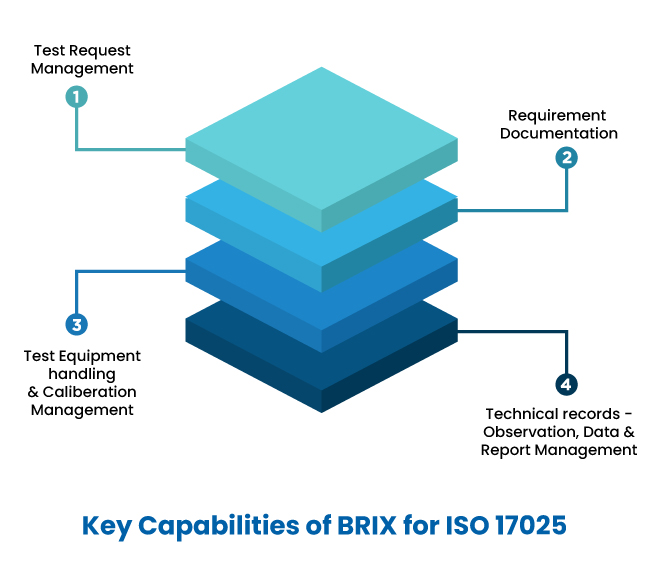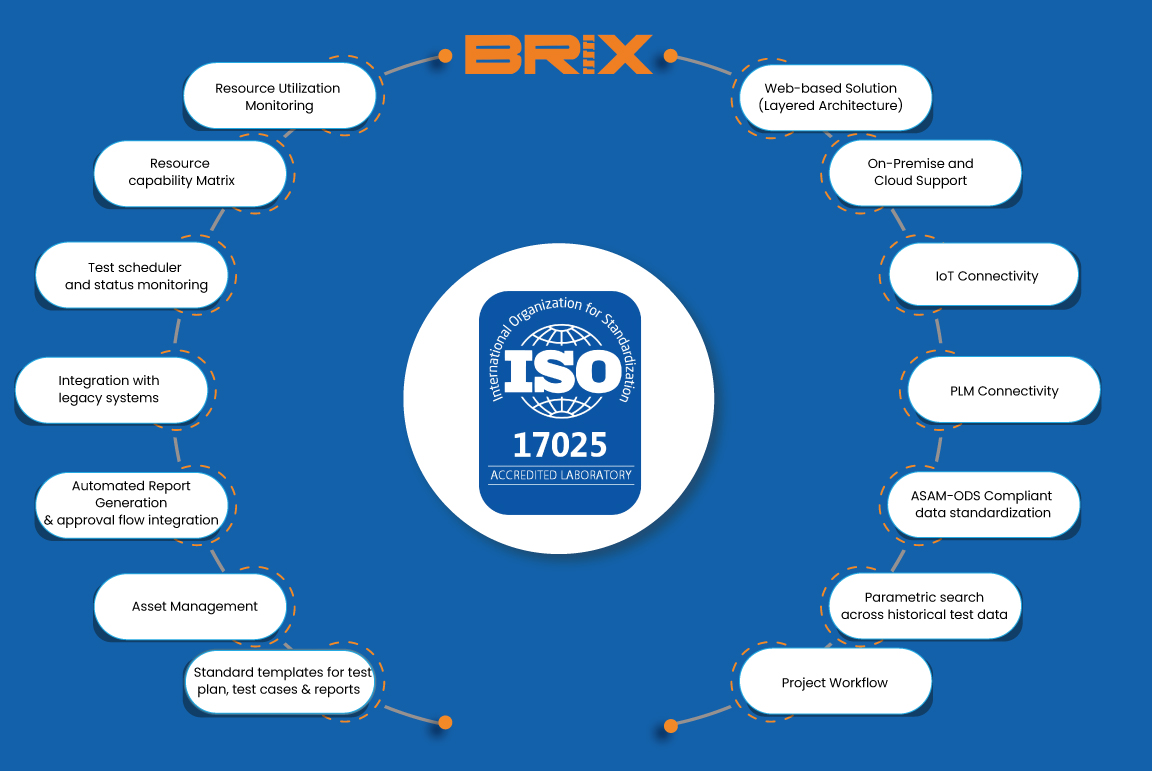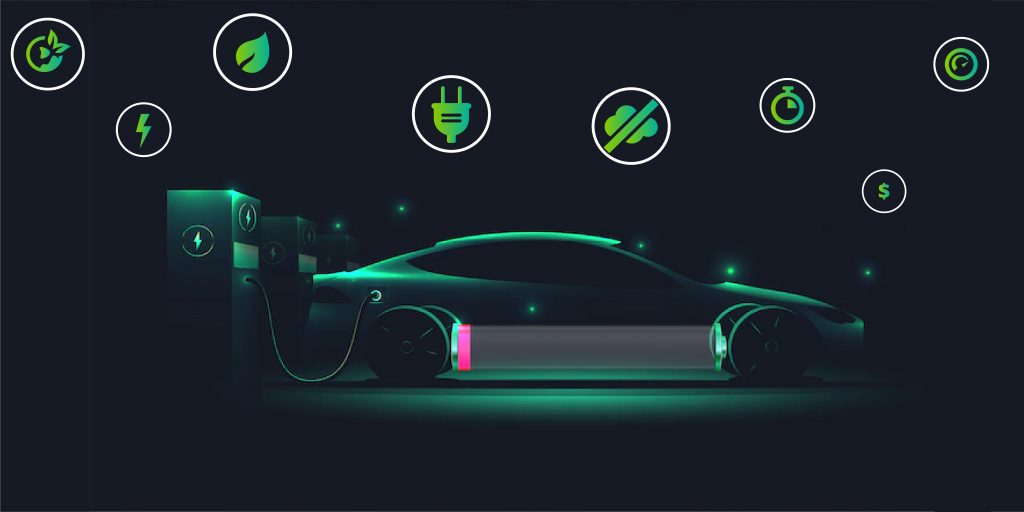Digital Transformation Supports ISO17025 Compliance
Why ISO 17025 Accreditation?
ISO 17025 Accreditation verifies a laboratory’s technical proficiency in conducting specific testing, measurement, and calibration activities. This results in improved productivity and resource utilization, which leads to cost savings for its customers. This accreditation signifies that the laboratory possesses:

1. An Effective quality management system.
2. Capability and expertise in delivering accurate testing and calibration results.
3. Assurance that tests adhere to international standards (ISO 17025), ensuring that the obtained results are universally acceptable across various governmental and regulatory entities.
A digital transformation platform for automotive testing laboratories streamlines compliance with ISO 17025 by centralizing data management, document control, maintenance tracking, and quality assurance processes.
Here's how a Digital Transformation supports ISO 17025 compliance:
Digital transformation platforms helps to organize and standardize test lab operation, thereby simplifying process adaptability and management.
It acts as a resilient platform for clearly defining project plans, streamline operations, asset and facility management, maintenance, and appropriate resource allocation.
The platform helps to establish defined policies, standard procedures, and instructions needed to ensure test results are accurate. It also maintain a quality manual with all important policy statements required for the ISO/IEC 17025 compliance.
Complete analysis of customer requests, tenders and contracts ensures the technical capability resource sufficiency to ensure compliance. It also involves process management and managing the procurement of services and supplies to avoid disruptions in lab operations. Furthermore, it also oversees subcontracted tests and calibrations to ensure compliance with required quality standards.
Through systematic digital document control mechanisms, the necessary comprehensive records for asset maintenance and calibration can be tracked and relevant actions can be issued for assets undergoing maintenance, calibration, or breakdown. Systematic procedures for record control, management reviews, and internal audits ensure adherence to ISO/IEC 17025 standards throughout laboratory operations. Measures to address non-conforming testing and calibration work, and we implement preventive & corrective actions to maintain compliance.
Actively engaging in customer interactions and feedback collection enhances service quality, meeting ISO/IEC 17025 standards for customer service. The platform also supports continuous improvement initiatives by enabling regular feedback collection from audit reports, data analysis, and management reviews.
The iASYS digital transformation platform, BRIX, enhances laboratory operations by streamlining processes, ensuring standardization, and offering effective management tools. It serves as a vital component in achieving compliance with ISO/IEC 17025 standards. Centralized digital control over laboratory operations ensures efficiency, accuracy, and compliance with regulatory standards, ultimately contributing to long-term success.

What makes the Brix Lab integration platform essential for automotive testing laboratories to comply with ISO17025???
1. Streamlining Workflows :
BRIX’s key feature lies in its ability to standardize processes effectively. It creates a uniform approach to testing, sampling, and calibration procedures, simplifying the identification of both efficient and problematic areas within laboratory operations.
2.Identifying Profitable and Problematic Areas :
BRIX LAB enables laboratories to identify areas contributing positively to business operations and those needing improvement. This insight allows for the correction of flaws, the adoption of better methods, and the enhancement of overall performance.
3.Remove Irrelevant Activities:
Standardized processes through BRIX leave no room for irrelevant or redundant activities. The platform ensures clearly defined workflows to minimize deviations that could impact result accuracy and validity.

Benefits of the BRIX Platform:
Standardization of Processes:
BRIX facilitates the standardization of testing, sampling, and calibration procedures, ensuring consistency across laboratory operations. This standardization simplifies workflow management and enhances efficiency.
Centralized Data Management:
The platform centralized data management , including document control, instrument calibration, maintenance tracking, and quality assurance processes.
Efficient Complaints Resolution:
BRIX facilitates the efficient resolution of customer complaints by maintaining comprehensive records and providing tools for tracking and documenting resolution steps. This ensures compliance with ISO/IEC 17025 requirements for addressing customer concerns.
Conclusion :
In the dynamic landscape of automotive testing laboratories, ISO/IEC 17025 compliance is non-negotiable. Using Brix as a common platform helps test labs digitize processes as required by ISO/IEC 17025. Standardized processes make test labs work better, cost less, and increase customer satisfaction, which leads to long-term success. The digital transformation platform becomes a catalyst for digital transformation, ensuring precision, reliability, and compliance in an industry that demands nothing less.



